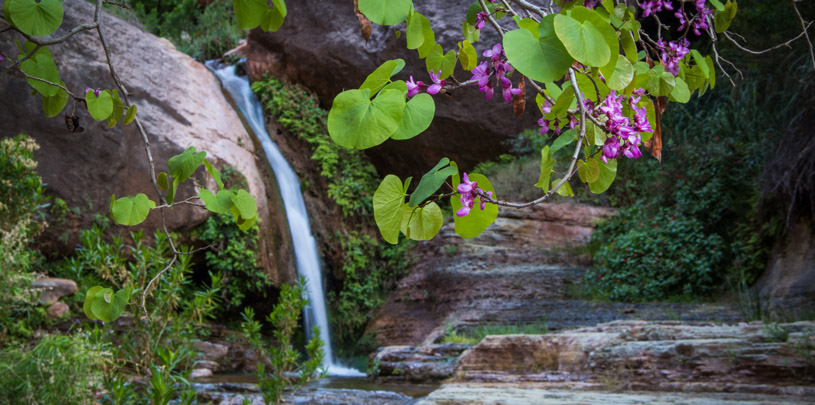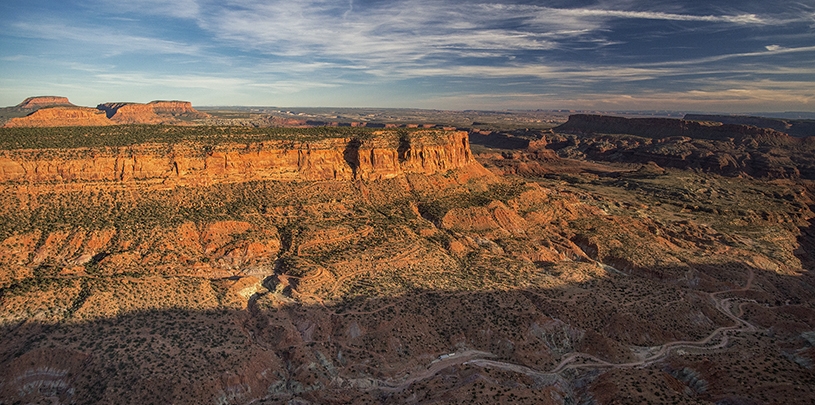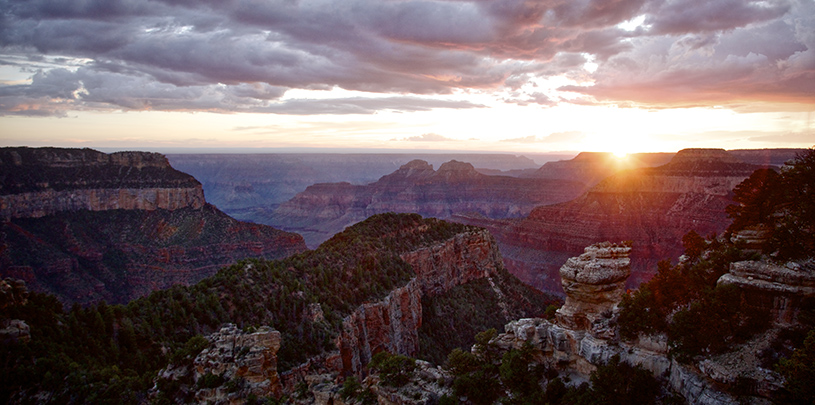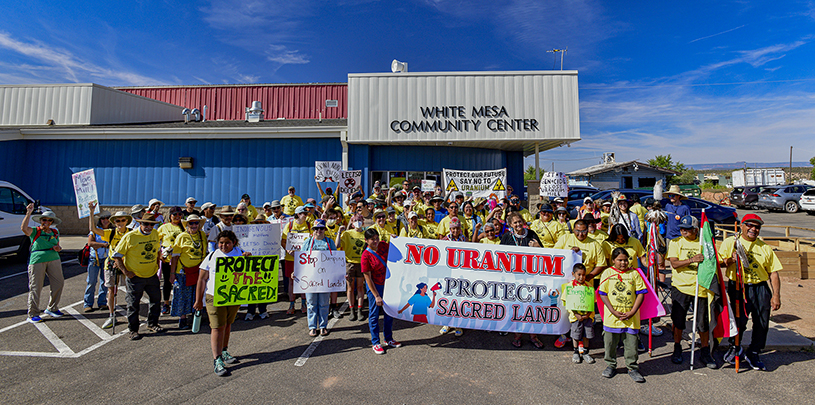
Supporters of the Grand Canyon and Bears Ears enjoyed a victory late last week. To the disappointment of two uranium mining companies — one with a significant stake in mining claims around the Grand Canyon and Bears Ears — President Trump announced that he would not implement import quotas on uranium. Quotas could have substantially increased domestic uranium prices, incentivizing uranium mines to throttle forward from the Grand Canyon to Bears Ears and elsewhere on the Colorado Plateau. Without them, the uranium mining industry’s dreams of an artificial market boost won’t be coming, at least not yet. Stock prices for the two mining companies that requested the quotas plummeted precipitously in response to the president’s decision. But that’s not the end of the story.
Between a yellow rock and a hard place
The proposed quotas put President Trump in the position of choosing between two industries he’s made promises to: the mining industry and the nuclear power industry. The latter strongly advocated against the mining companies’ proposed import quotas, estimating that forced domestic sourcing of uranium for nuclear power would drive up the industry’s costs by $500 to $800 million per year and result in the closure of nuclear power plants already struggling to compete with cheaper natural gas and increasingly cost-effective renewables like wind and solar power.
The majority of uranium imported to the United States comes from mines in Canada and Australia, where high quality ore makes uranium far cheaper than what U.S. mines can produce. In a recent interview with Utah Public Radio, a spokesman for the Ad Hoc Utilities Group, which includes the majority of nuclear energy generators in the U.S., stated “the only beneficiaries [of import quotas] would be the profit seekers at the two mining companies.” This collision of opinions may have led President Trump to temper his quota decision by establishing a new United States Nuclear Fuel Working Group.
Another avenue for uranium mining on U.S. soil?
The newly formed working group has until mid-October “to develop recommendations for reviving and expanding domestic nuclear fuel production.” It is co-chaired by the president’s national security and economic policy advisors and includes Secretary of the Interior David Bernhardt, among others. So while, for the time being, uranium mining companies won’t see restrictions on imports of uranium, including from allied countries like Canada and Australia, recommendations for “reviving and expanding” domestic nuclear fuel production could come with any number of implications for our treasured public lands around the Grand Canyon and Bears Ears. For a clue about what those implications might be, we need look no further than the newly released strategy to enhance access to uranium and other “critical minerals” as defined by the Trump administration.
Through the lens of the critical minerals strategy
While we don’t know for sure what will come out of this 90-day review by the working group, we’d be remiss not to view the possibilities through the administration’s already-stated priorities and strategies. In the beginning of June, the White House released its critical minerals strategy, which, among other things, recommends streamlining America’s most foundational environmental laws to allow uranium and other mines to go forward with less scrutiny. The critical minerals strategy also suggests reviewing and revising mining bans and other land designations, including national parks, wildlife refuges, and national monuments to allow for critical mineral mining. The administration has already slashed Bears Ears by 85 percent, at least in part due to lobbying efforts by one of the companies that requested quotas. The administration could also attempt to reverse a ban on new uranium claims around the Grand Canyon.
Help us fight back
You can help us battle attempts by the uranium industry to mine our most treasured public lands by urging your representatives to support the Uranium Classification Act of 2019, which would remove uranium from the critical minerals list, something experts say is needed. You can urge your congressional representatives to support a permanent ban on mining near the Grand Canyon, including asking your senators for a companion bill in the Senate. You can also urge your member of Congress to co-sponsor the BEARS Act of 2019, which would restore and expand the boundaries of Bears Ears.




